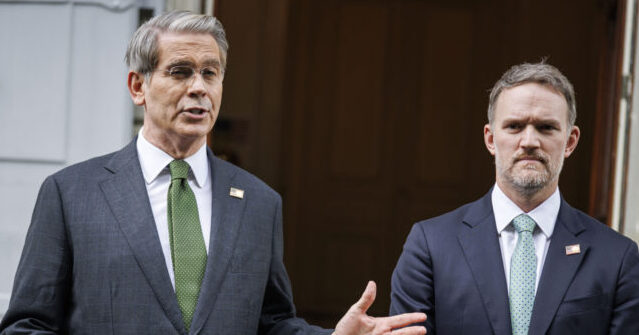The United States and China agreed on Monday to suspend the vast majority of tariffs imposed to convert their recent commercial confrontation, committing to a 90 -day decallation while formal negotiations continue.
The agreement was announced in a joint statement after two days of high -level conversations in Geneva, where the delegations of both governments convince to address the growing economic tensions.
According to the terms of the agreement, the United States will reduce its reciprocal tariff on Chinese imports to 10 percent, below the level of 125 percent imposed during commercial confrontation at the beginning of this year. China will coincide with that movement by reducing its own rate on US assets to 10 percent, also from 125 percent. Beijing also agreed to suspend non -tariff countermeasures that had promulgated the leg since the beginning of April.
A separate tariff of the United States imposed on the role of China in the supply of manufacturers of illicit medicines will remain in place key ingredients for fentanyl.
Both parties described the movements as initial steps towards a more “sustainable, long -term and mutual benefit.” They committed to continuous conversations through a recently created bilateral mechanism. The Vice Primer Chinese Minister, He Lifeng, will direct the Beijing delegation, while Treasury Secretary Scott Besent, and the United States trade representative, Jamieson Greer, will regret the United States.
“The parties recognize the importance of their bilateral economic and commercial relationship with both countries and the global economy,” the statement said, adding that discussions would process “in the spirit of mutual opening, continuous communication, cooperation and mutual respect.”
The agreement stops a quick escalation in the commercial barriers that began in April, when President Trump imposed an increase in new tariffs on Chinese imports, increased total tariffs such as the high axis 145 permen in some goods. Beijing responded in kind, and bilateral commercial flows collapsed in recent weeks, contributing to fear of increasing inflationary pressures in the United States and interrupting Chinese exports.
Monday’s agreement marks the first important step of the confrontation, he thought that both parties emphasized that rates suspensions are temporary and are subject to new negotiations.


